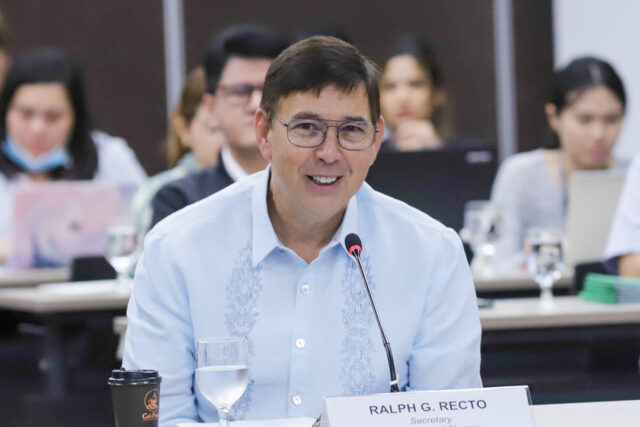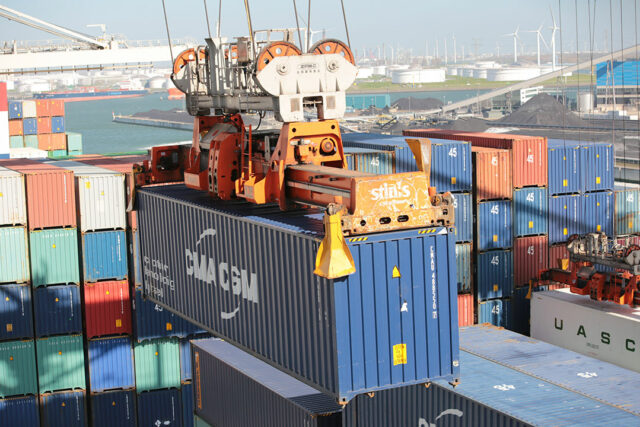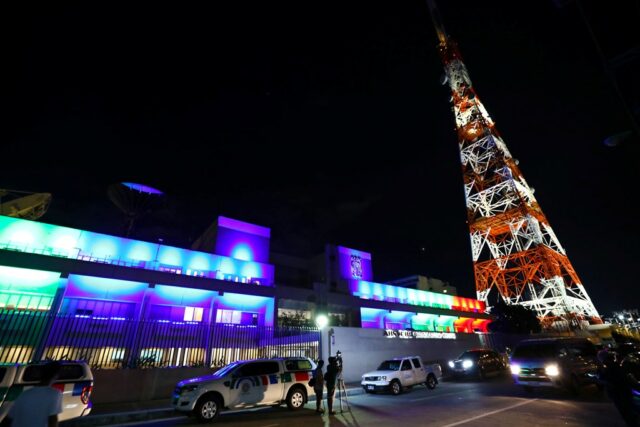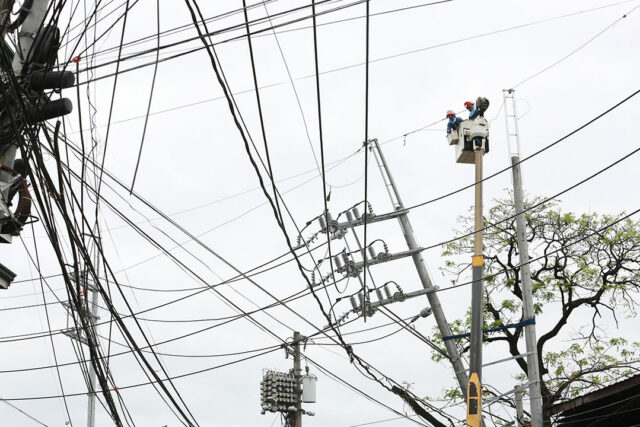(This was lifted from the Inaugural Address delivered on Jan. 18 by the author as the 2024 President of the Management Association of the Philippines or MAP.)
A few years ago, I was invited by the big blue school in Katipunan to speak at the honors ceremony where the best and the brightest were being recognized. I decided to ask the honorees if success was their ultimate objective. The young, energetic, and idealistic minds naturally responded positively.
I then ventured to suggest to them, wouldn’t being significant be a better objective? Many years since then, being more aware of the challenges of the times, I realized that being significant meant being relevant. I reasoned to them, one can be successful but not relevant, but one who is relevant is always successful. I explained to the young minds that everyone aspires to leave behind a mark of one’s lifetime, a legacy of one’s relevance takes center stage in depth and meaning.
The dictionary meaning of “relevant” is: connected or appropriate to the situation, the period, the activity, or the aspiration. “Relevant” comes from the Latin word “relevare,” which means “raising up.” By being relevant, we not only raise up ourselves, but more importantly, we raise others up. I believe the present call for all of us, our organizations, our businesses is to be relevant to the times, to the community, to the nation, and to the environment.
In navigating the complexities of an ever-evolving domestic and global landscape, embracing relevant leadership in business and government is not just an option but now a necessity and a continuous journey towards a progressive future.
As in the past, our activities this year will be guided by a theme. For 2024, the MAP Board of Governors has chosen the theme “Relevant Leadership for a Progressive Philippines.”
In line with this theme, MAP will pursue five thrusts:
1. Member Engagement,
2. Country Competitiveness,
3. ESG and Shared Prosperity,
4. Innovation, Technology and Digitalization, and,
5. Investing in the Youth.
MEMBER ENGAGEMENT
We will ensure the relevance of the topics and issues to be taken on in the MAP general membership meetings (GMMs) and other activities. The objective is to engage the membership in a more meaningful way. The programs will be executed to be interactive and engaging, discussing relevant topics and developments so as to benefit the members, their companies and the economy.
We will endeavor to have topics and resource persons who can stimulate and engage with our members.
We will expand outside Metro Manila to the key cities where we can engage new members and, through technology, enable their virtual participation in our various activities. This will be our way of helping expand business and economic development benefits to the rest of the country.
COUNTRY COMPETITIVENESS
Recent economic realities, together with globalization, highlight the need to enhance our country’s competitiveness, as all the other economies are doing.
To help improve the global competitiveness of the Philippines, we will push for vital policy reforms, through executive or legislative action, that will eliminate corruption, improve the ease of doing business, ensure food security through agricultural productivity, and sustain an enabling business environment for local and foreign investors. The aspiration is to attract greater and more diverse job-creating investments for more Filipinos to be gainfully employed.
ESG AND SHARED PROSPERITY
We need to respond to the reality of heightened economic inequality and the adverse long-term effects thereof. For our thrust on ESG and Shared Prosperity, we will push for the discourse and actions to encourage our members’ companies towards shared economic prosperity for all, environment and climate action, and principled business practices and governance.
INNOVATION, TECHNOLOGY, AND DIGITIZATION
With the recent technological developments that threaten jobs and the present workforce, we encourage action to prepare for the transitions. It is important that we encourage proper technology adoption, innovation, and digitalization to address these evolutionary challenges.
We also see digitalization as the key to improving the quality of service for the Filipinos and addressing corruption, both in the private and the public sectors.
INVESTING IN THE YOUTH
With increased global competitive realities, the development of competencies and well-being of the Filipino, especially the youth, is now more critical.
We will continue the Campaign against Malnutrition and Child Stunting or CAMACS and we will advocate for government and the private sector to pursue relevant education, health and wellness programs, particularly for the youth. The objective is for them to become productive members of society, with competitive skills and capacity that will ensure a progressive economy of the future.
MAP MEMBERS’ TOP SEVEN CONCERNS FOR 2024
We will certainly address the following Top 7 concerns of MAP members for 2024 which were generated through a survey in the 4th quarter of last year:
1. Corruption,
2. Ease of Doing Business,
3. Economy,
4. Agriculture,
5. Cybersecurity,
6. Education, and,
7. Climate Change.
Please note that all these top 7 concerns will be directly addressed by the five thrusts that we have explained.
WORKING WITH MAP COMMITTEES UNDER 5 GROUPS
In general, we will build on MAP’s current activities that benefit our members and other stakeholders.
While focusing on the five main thrusts, we will continue to pursue other advocacies and programs to adapt to dynamic changes in the domestic and global landscape.
Your 2024 Board will work with the 21 MAP committees which shall be grouped according to our five main thrusts for 2024.
1. The Member Engagement group will be headed by Noel Bonoan and myself.
2. The Country Competitiveness group will be headed by Corrie Purisima and myself.
3. The ESG and Shared Prosperity group will be led by Rex Drilon II and Marts Sazon.
4. The Innovation, Technology and Digitalization group will be handled by Marts Sazon and Al Panlilio.
5. The group on Investing in the Youth will be handled by Karen Batungbacal, Corrie Purisima and Al Panlilio.
We have listened and considered your input in our planning and identification of the five main thrusts and activities. We would appreciate your continued input and suggestions, please let me or the MAP Secretariat know.
We will be relying on the valuable support and active participation of every MAP member, particularly the MAP Governors and all the Committee Chairs and Vice-Chairs.
Years ago in that Katipunan event, the Jesuits and Faculty liked what I said as they told me so. I wondered though, how many of the best and the brightest listening agreed with me? I would have been very happy if some were even open to the consideration that it’s not all about personal success.
Today, here we have a roomful of very successful and significant individuals. It is a privilege, but much more a challenge, to be serving this prestigious group of women and men, full of talent, skill, and capability, but more so committed to do good, to do what is right for a better nation.
In addition to all the successes and significance here present, may we invite all of you to join us. Let us all share in the aspiration to be relevant leaders that are committed to a better future for the generations to come.
Your support will be very crucial to achieving our aspirations.
Thank you! Mabuhay ang MAP at mabuhay kayong lahat!!
Rene D. Almendras is the president and CEO of AC Logistic Holding Corp.
map@map.org.ph
almendras.rd@ayala.com













